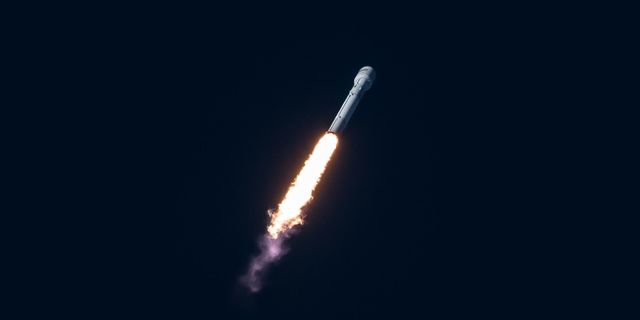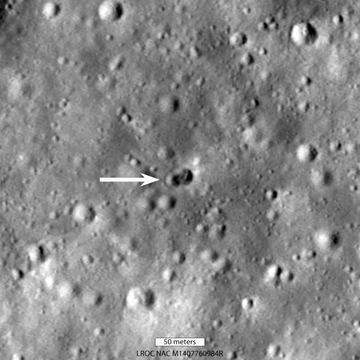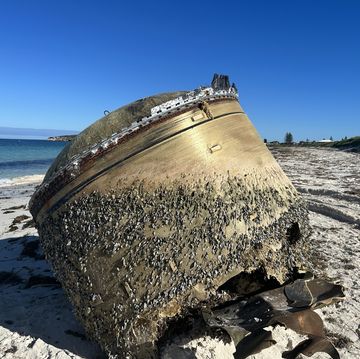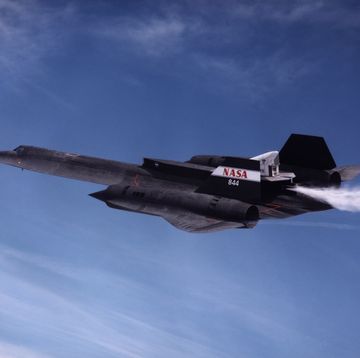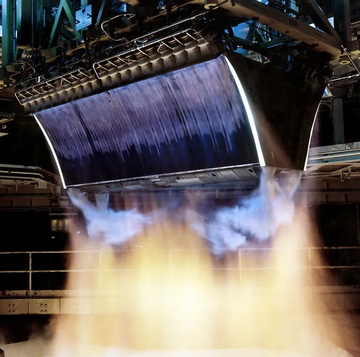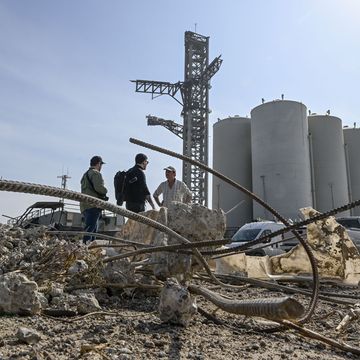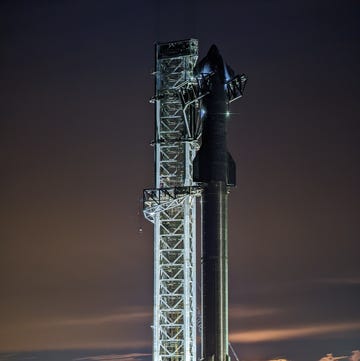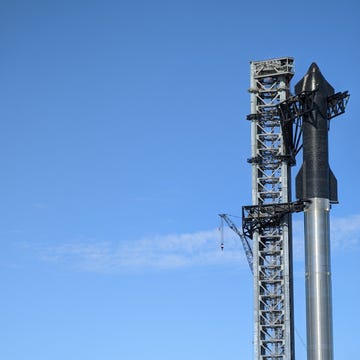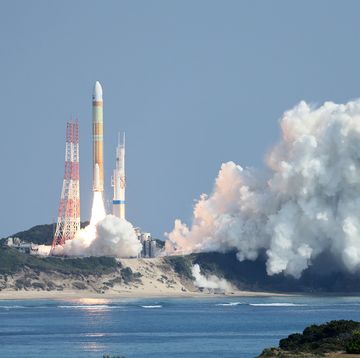Update 7:15 p.m. EDT: The Falcon has landed. SpaceX's Falcon 9 rocket lofted the EchoStar 105/SES-11 satellite to a geostationary transfer orbit, and the first stage booster touched down on an autonomous droneship off the coast of Florida in the Atlantic Ocean. This marks SpaceX's 18th successful first stage recovery, the 12th this year. SpaceX's 15th successful launch this year gives the spaceflight company more total launches in 2017 than every other company and country in the world.
Original Post:
SpaceX is planning to launch a Falcon 9 rocket Wednesday night from Kennedy Space Center in Florida. The mission will attempt to carry a communications satellite that will be used by two companies, EchoStar and SES, to geostationary transfer orbit (GTO). The two-hour launch window begins at 6:53 p.m. ET, and you can watch a livestream of the launch and first stage landing attempt in the video below (coverage generally begins about 20 minutes before launch).
The launch would be the second in three days after SpaceX successfully lofted 10 Iridium NEXT satellites into orbit on Monday from Vandenberg Air Force Base on the California coast. The back-to-back launches are a testament to the rapid pace that SpaceX has established. Tonight's launch would be the 15th for SpaceX this year, accounting for more rocket launches in 2017 than not only any other spaceflight company, but any other country.
The launch will also use what SpaceX calls a "flight proven" first stage booster. Tonight's launch would be the third time SpaceX launched a used rocket. The first stage, which makes up most of the rocket and fuel, first flew on February 19 of this year when it carried a Dragon capsule full of supplies to the International Space Station and then returned to Earth for a successful landing. The booster has since been refurbished and is ready to fly again and attempt another landing, this time on the droneship Of Course I Still Love You.
Luxembourg-based satellite company SES is eager to launch on another "flight proven" rocket, and the company was the first to purchase a launch on a used rocket that lifted off back in March. Reusing rockets is key to driving launch costs down and making access to space more affordable, one of SpaceX's major goals in its ultimate quest to colonize Mars. If tonight's launch with a used rocket goes off without a hitch, other companies might be encouraged to to purchase discount rides to space on "flight proven" Falcon 9 boosters. For only the third time in history, an orbital class rocket will attempt to fly again.

Jay Bennett is the associate editor of PopularMechanics.com. He has also written for Smithsonian, Popular Science and Outside Magazine.
